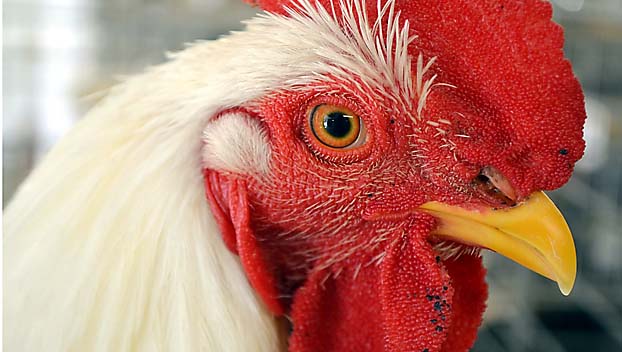The multi-billion dollar chicken business in Mississippi at heart of why state leaders repeatedly balk at tougher immigration rules
Published 11:44 am Thursday, August 22, 2019

- (stock photo)
“Some groups wanted to follow the lead of Alabama and allow local law enforcement officers to begin enforcing federal immigration laws, but Alabama has been mired in
federal lawsuits and suffered an economic black eye,” wrote Mark Leggett, the president of the state poultry association in a 2012 association newsletter touting the defeat of the papers-please bill as one of his group’s legislative accomplishments.
In fact, since 2012, almost all legislation dealing with immigration has stalled in the Legislature. In 2017 and 2018, Rep. Currie introduced two identical “papers please” bills — even leaving “2012” in the summary of the act. They died in a committee chaired by former Rep. Andy Gipson, R-Braxton, now the state’s agriculture commissioner.
One victory for advocates of stricter immigration enforcement came in 2017 when the Legislature passed a measure prohibiting so-called sanctuary cities. However, even supporters of the legislation said at the time that there were no communities in Mississippi officially designated as sanctuary cities.
Mississippi is one of 20 states that require some employers to use E-Verify, a web-based application used to confirm a worker’s eligibility to work in the U.S.
In most of those E-Verify states, however, the requirement only applies to public employers. Mississippi and just five other states — Alabama, Arizona, North Carolina, South Carolina, Tennessee — applies the requirement to all employers, according to the National Conference of State Legislatures. Mississippi enacted the law in 2008, with Bryant’s full support, at a time when several states were beginning to crack down on migrants working in the states without authorization.
“It was political from the beginning,” said Rep. David Baria, D-Bay St. Louis, who criticized the leadership for not focusing on greater penalties for employers found hiring workers unauthorized to work in the country.
Despite the poultry association’s role in the state immigration bills’ defeat, the group remains an influential presence on High Street.
In addition to lobbying activities such as paying for meals and some travel for lawmakers, the state poultry association has donated $235,700 to 234 political campaigns since 1999, according to Montana-based FollowTheMoney.org, which tracks campaign finance filings at the state level. In the last two decades, the association gave the most donations — 70 in all — in 2011, an election year and the first year Currie introduced her “papers, please” law in the House, which died in committee.
Leggett, the poultry association’s president and lobbyist, did not return phone calls for this story.





